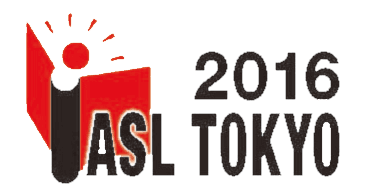Developing Students’ Information Skills based on Empowering 8 Information Literacy Model in The Siyabalanduwa Educational Zone, Sri Lanka
DOI:
https://doi.org/10.29173/iasl7188Keywords:
students' information skills, empowering 8 information literacy model, information literacyAbstract
According to the statistics of the Examination Department in Sri Lanka, Monaragala is one of the lowest ranked educational zones of the at the General Certificate in Education (Advanced Level) Examination which is the final examination in school education. Siyabalanduwa division, a rural area located about 280 km away from the the capital of Colombo, has been obtaining the lowest rank in this examination during each year. Therefore, the researchers decided to carry out an action research as a pilot program, with the collaboration of principals, instructors and school librarians in this education division in order to remedy the above problem. Nine schools which were conducting courses of instructions for the advanced level examination in this division, were chosen for the research. Initially, a three day workshop was conducted for a group of 40 members which included principals, three advanced level teachers of the science, arts, and commerce streams and the school librarians. The concepts of information and learning, resource based learning, information literacy, empowering 8 information literacy model and information literacy skills were discussed during the first two days. The method of carrying out an action research was presented on the final day. As an outcome of this action research, each school decided to conduct a one month information literacy orientation program for newcomers to the advanced level classes. To identify the students’ prior knowledge, a common written paper was applied as a pre-test. After analyzing the students’ answer scripts, each school prepared an action plan which was conducted using the school library, audio visual room, and the computer laboratory, as a collaborative teaching learning process. Apart from that the NILIS research team conducted another three day workshop. On the First two days the research team visited each school and perused the students’ pre and post test marks, lesson plans, activity sheets, student work, and written reflections. In addition, discussions were held with each school principal, teacher, school librarian and the students participating in the research. On the final day writing an action research report was introduced. After conducting the action research, each school submitted its report to the National Institute of Library & Information Sciences (NILIS) and the Director of the Zonal Education Office, Monaragala. On analyzing the reports, it was perceived that there was a considerable improvement between pre and post test marks in each school. The students’ reflections too elaborated the importance of this program for their future studies. In 2016 the Zonal Education office conducted a two day conference for all advanced level school teachers, and school librarians in the Monaragala District promote this program as a solution for the problem.
Downloads
Published
Issue
Section
License

This work is licensed under a Creative Commons Attribution-NonCommercial 4.0 International License.




